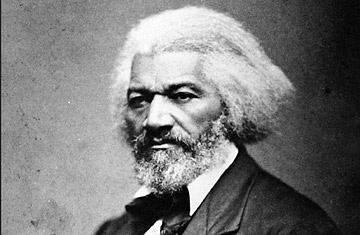Frederick Douglass was born in slavery as Frederick Augustus Washington Bailey in Maryland, U.S.A. As a young house servant he learned to read write with the assistance of his master’s wife. Later, became such in impressive orator that he attracted large crowds. He continuously fought for the emancipation of the slaves. Frederick Douglass wrote “Narrative of the Life of Frederick Douglass”. His other autobiographical works are “My Bondage and My Freedom” and “Life and Times of Frederick Douglass”.
Synopsis
This lesson “Frederick Douglass” is an excerpt from “Narrative of the Life of Frederick Douglass, an American slave”. Here, Douglass recounts a moving account of his life as a slave. He talks repents over being born dark skinned which deprived him of the privilege to know his age. The slave masters would ensure that the slaves were kept in darkness over their age and parentage. It was admitted that a slave’s father was invariably his own master. The child and the mother would often be separated at a very early age so that there would be no affection and bonding left between them. Douglass narrates how he was separated from his mother and the news he heard of his mother’s death.
The later part of this excerpt reads about the ruthless slave masters and their brutal torture of the slaves, especially the women. Notwithstanding these horrific sketches, Frederick Douglass says that his faith and hope never departed from him.
Theme
Slavery is one inhuman practice that separated people based on the colour of the skin causing discrimination and injustice. This piece “Narration of the Life of Frederick Douglass, an American Slave” unfolds scenes from those times of horror wherein the blacks were subjected to humiliation and barbarity.
Frederick Douglass in this excerpt from his biographical narrative gives his life as a slave boy. He always wondered as a boy why he knew nothing about his age. He realized gradually that the slaves were thus kept ignorant so that there would be no impertinent inquiries to the masters.
He was born to coloured parents; his father was a white man. It was admitted that a slave’s master was apparently his father too. He was separated by his mother when he was just an infant. This was, perhaps to deny the child of development of affection towards its mother and finally destroying the natural affection. He remembers having seen his mother four or five times in his life.
Frederick Douglass further takes us through that account of white master’s atrocities, their subjugation of slave women to their lusts and sustaining this cunning arrangement for the gratification of their wicked desires.
The writer gives us in vivid detail how Mr. Plummer, an overseer of Captain Anthony farms acted barbarically. He was a miserable drunkard, a profane swearer and a savage monster. Armed with a cow skin and a heavy cudgel, he would often cut and slash the women’s heads so horribly.
A slaveholder on the other hand used to be cruel man, hardened by a long life of slave holding. He would at times take great pleasure in whipping a slave. Frederick remembers very well how an aunt of his was tied up to a joist and whipped upon her naked back till she was literally covered with blood. He was so merciless that he whipped. He would not stop until he was overcome by fatigue. It was so horrific and inhuman.
Although the grips of slavery made Frederick Douglass’ life miserable like many such slaves, his hopes of freedom and emancipation guided him through his darkest hours of his career in slavery.


Comments
Post a Comment